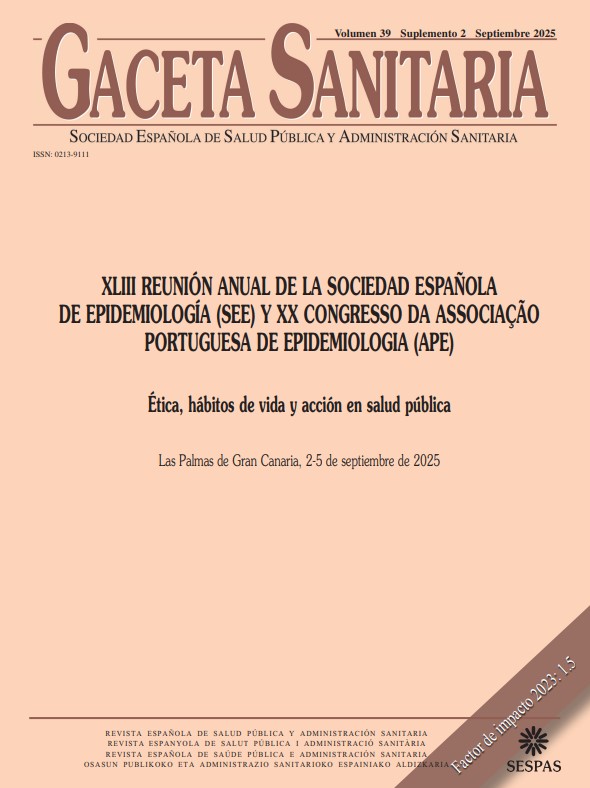175 - DIET QUALITY PATTERNS AND CHRONIC KIDNEY DISEASE INCIDENCE: A UK BIOBANK COHORT STUDY
Department of Preventive Medicine and Public Health, School of Medicine, Universidad Autónoma de Madrid; CIBERESP; IMDEA-Food Institute; Department of Environmental Health, Harvard T. H. Chan School of Public Health.
Background/Objectives: Only a few studies have investigated the role of diet on the risk of chronic kidney disease (CKD) in European populations and have mainly focused on the Mediterranean diet. Our objective was to study the relationship between a set of 6 different diet quality indices and CKD incidence among British adults. This is the first study to do so.
Methods: A prospective cohort with 106,870 participants from the UK Biobank, followed from 2009 to 2012 through 2021. Food consumption was obtained from 2 24-h dietary assessments. Dietary patterns were assessed using previously established indices: Alternate Mediterranean Index (aMED), Alternative Healthy Eating Index 2010 (AHEI), dietary approaches to stop hypertension (DASH), healthful plant-based diet index (hPDI), unhealthful plant-based diet index (uPDI), and dietary inflammatory index (DII). Incident CKD was obtained from clinical records, death registries, and self-reports. Analyses were performed with Cox regression models and adjusted for the main confounders.
Results: After a median follow-up of 9.27 y, 2,934 cases of CKD were ascertained. Hazard ratios (95% confidence interval) of CKD for the highest compared with lowest tertile of adherence to each diet score were 0.84 (0.76, 0.93) for aMED, 0.94 (0.85, 1.03) for AHEI, 0.77 (0.70, 0.85) for DASH, 0.79 (0.72, 0.87) for hPDI, 1.27 (1.16, 1.40) for uPDI, and 1.20 (1.18, 1.33) for DII. The results were robust in sensitivity analyses.
Conclusions/Recommendations: In British adults, higher adherence to the aMED, DASH, and hPDI patterns was associated with lower risk of CKD, whereas greater adherence to the uPDI and DII patterns was associated with greater risk.
Funding: This work was supported by the Instituto de Salud Carlos III, Secretaría de Estado de I+D+I and the European Regional Development Fund/European Social Fund (FIS grants 22/0111, 20/00896, PI23/00079); Agencia Estatal de Investigación (CNS2022-135623); Comunidad de Madrid, European Regional Development Fund (“FACINGLCOVID-CM” project, funding REACT EU program); Instituto de Salud Carlos III and European Union (NextGenerationUE, PMP21/00093); Ministerio de Ciencia, Innovación y Universidades, Agencia Española de Investigación, NextGenerationEU/PRTR (PLEC2022-009352, CPP2022-009718); Instituto de Salud Carlos III, Centro para el Desarrollo Tecnológico Industrial, NextGeneration EU/PRTR (PMPTA22/00107, PMPTA23/00012); Ministerio de Ciencia, Innovación y Universidades (RYC 2018-02069I to MS-P); Universidad Autónoma de Madrid (FPI contract to JMR).















